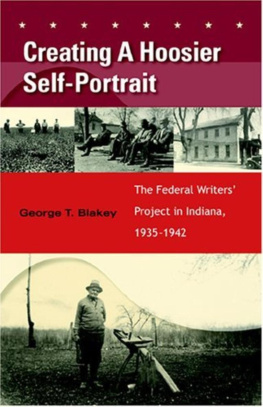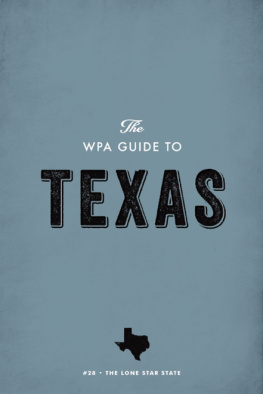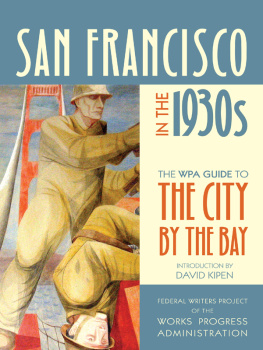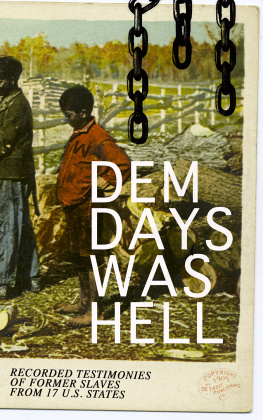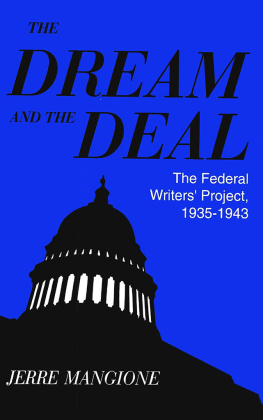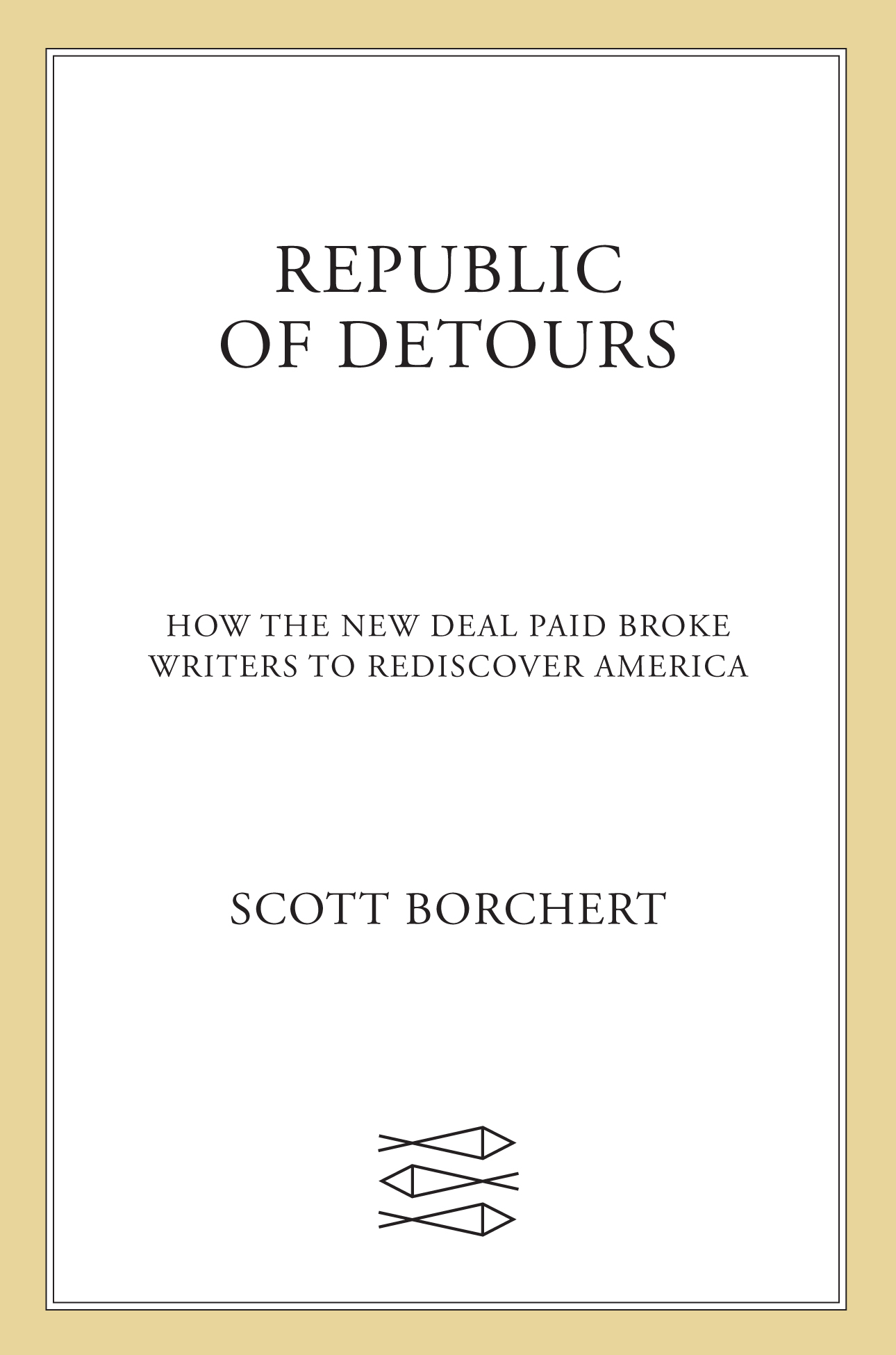The author and publisher have provided this e-book to you for your personal use only. You may not make this e-book publicly available in any way. Copyright infringement is against the law. If you believe the copy of this e-book you are reading infringes on the authors copyright, please notify the publisher at: us.macmillanusa.com/piracy.
More public good has come out of the bankruptcy of the economic order than ever came regularly out of its most flatulent prosperity.
Imagine stopping someone on a Manhattan street and asking for directions to Times Square. If that person commenced a monologue beginning, It is the district of glorified dancing girls and millionaire playboys and, on a different plane, of dime-a-dance hostesses and pleasure-seeking clerks. Here, too, in a permanent moralizing tableau, appear the extremes of success and failure characteristic of Broadways spectacular professions: gangsters and racketeers, panhandlers and derelicts, youthful stage stars and aging burlesque comedians, world heavyweight champions and once-acclaimed beggars, and then that person recounted the histories of every theater and club, the development of the areas rapid public transit, and the origin of the phrase the Great White Way (coined, supposedly, in 1901 by the adman O. J. Gude), all in a tone both disdainful and celebratory of the famed intersection that lights the clouds above Manhattan with a glow like that of a dry timber fireyou would know what it was like to read the American Guides, a curious series of books that appeared during the last years of the Great Depression. Specifically, youd know what it was like to read the New York City Guide, which was published in 1939. And youd be no closer to Times Square.
Alongside New York City, there was a guide for every state (forty-eight of them then), plus the District of Columbia, the Alaska Territory, and Puerto Rico. Other cities and townsand locales such as Death Valley and routes such as US 1got the guidebook treatment, too. The public bought them, expecting books in the popular Baedeker mode: travel companions that were concise, comprehensive, and functional. But the hefty American Guides were something else.
These books sprawled. They hoarded and gossiped and sat you down for a lecture. They seemed to address multiple readers at once from multiple perspectives. They ran to hundreds of pages. They contained a mlange of essays, historical tidbits, folklore, anecdotes, photographs, and social analysisalong with an abundance of driving directions thickened by tall tales, strange sites, and bygone characters. They were deeply researched on subjects of little use to a travelerthe structure of local government, a states literary residentswhile they barely mentioned diners, motels, and gas stations. They were rich and weird and frustrating.
Most of the state guides were divided into three sections. First, perplexed readers paged through essays on history, industry, folkways, and other subjects. Then came profiles of notable cities and towns, and, finally, a collection of automobile tours across the state. The tours highlighted scenic overlooks and recreation spots, but they were also dense with Indian massacres, labor strikes, witches, gunfighters, Continental Army spies, Confederate deserters, shipwrecks, slave rebellions, famous swindlers, and forgotten poets. They traveled through towns with bizarre names and towns founded by religious cults; they pointed out architectural curiosities, dubious monuments, and decayed trading posts. They paused for every old-timers story that could be fastened to a patch of ground. They knew of ghosts on every road. They mentioned all the places where Washington ever slept and where Lincoln was ever born. They guided tourists across the land but also deep into the national character, into a past that was assembled from the mythic and the prosaic, the factual and the farcical. The tours seemed less accessories for motorists than rambling day trips through the unsorted mind of the Republic.
This shaggy opulence, this Americana maximalism, made the guides unusual. But their provenance made them remarkable. They werent issued by some erratic publisher or obsessive-compulsive tourist association: they were in fact created by the federal government. They were researched, written, and edited by members of the Federal Writers Project, a division of the Works Progress Administration. The WPA was a cornerstone of the New Deal, one of several agencies tasked with delivering jobs to the jobless. The American Guides were among the unlikeliest weapons in the improvised arsenal that the Roosevelt administration brought to bear upon the Depression.
Launched with the WPA in 1935, the FWP provided work for unemployed writers, whether professional or aspiring, competent or otherwise. It wasnt a huge program, comparatively. The entire WPA employed more than 2 million people a month, on average, while the FWP averaged 4,500 to 5,200 people and peaked at 6,686. FWP workers were scattered in offices around the country: in each states largest city and in satellite offices, and in the projects headquarters in Washington. Some of them worked mostly at home or in the field. Many federal writers were teachers, beat reporters, clerks, lawyers, librarians, people laid off from advertising firms or real estate agencies, members of the clergywhite-collar workers whose jobs had disappeared and who were better suited to desk labor than, say, draining malarial swampland. They worked alongside poets and novelists, including some significant writers whose fame had been eclipsed by the Depression and others who had yet to become famous. A handful of illustrious figures from the world of American letters collected an FWP paycheck at one time or another. (Ill skip the potted roster. Well meet them.)
The FWP operated in tandem with the other WPA arts projects, for theater, visual art, and music; all were part of the same policy strategy that, through the Civilian Conservation Corps, sent young men to clear forest trails or, through the Public Works Administration, paid workers to build the Lincoln Tunnel. The FWP was a work relief program, and its primary mission was to keep writers from starving to death or killing themselves, while putting cash into circulation and contributing, however modestly, to the economic recovery. But it was also a literary endeavor of unprecedented scale. When the FWP was finally dissolved, along with the rest of the WPA, in 1943, Time magazine gave it the epitaph the biggest literary project in history. That sounds like hyperbole. But the projects administrators and its defenders made this claim, too, and it does not seem to be disputed. The work we do has one notable feature, wrote Henry G. Alsberg, the FWPs national director, to his friend the novelist and critic Waldo Frank. It is a cooperative job, the first on such a great scale that has ever been attempted, I believe. Alsberg would knowhed seen a good chunk of the world as a roving journalist, and hed been to Soviet Russia, where they tried things like this. But, with the FWP, he sat at the helm of something truly new.


